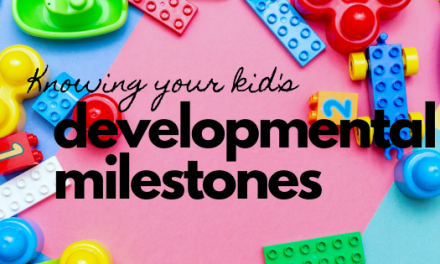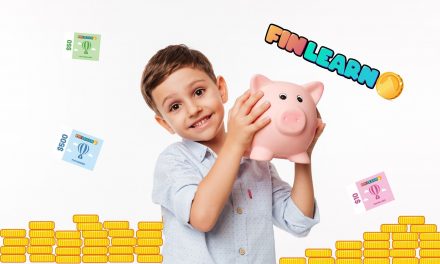If 70 years ago authoritarian method was the popular way of raising your children, that’s no longer the case now. In fact, these days, it is very hard to implement that parenting style where children have to follow strict rules established by the parents -without being explained the reasoning behind it- and when they don’t do that, we punish them.
Digitalisation has certainly played a massive role in changing the landscape of parenting. With social media, pornography and violent contents being so easily accessible nowadays, the question of how do we aid our children to safely walk the path of adolescence has just got more complicated. While outlining ways to be a perfect parent is rather impossible (for there is no such thing as that), there are some measures that can be taken to protect our children from the dangers of the digital world.
Modeling
You won’t need to marvel at walking on the runway to be a good parent, but you certainly need to know how to walk the talk. Children’s behaviour are massively influenced by what they perceive, especially during their early years of life. Hence if you want them to do it, you show it.
Rather than just setting rules to limit your children’s tech use, you need to curb your own digital habits too. You can’t expect your child to not watch the TV, when you are constantly on your phone, scrolling through Facebook. It’s just unfair. Instead, take them out for a jog or a picnic, read books with them, teach them about sympathy by bringing them to volunteering programmes etc.
Technology is not a ‘Pacifier’
Yes, technology is always the most effective way to keep your kids calm and quiet, but this is not the best solution. Children need to be taught how to identify and handle strong emotions, come out with activities to manage boredom, calm down through simply breathing, sharing their emotions and solving it, and finding other ways to channel their emotions.
Mind-set
It is important for parents to stay ahead in the digital trend to guide their kids through the digital age. There are positive and negative effects of digital media on children. The key is for parents to have enough flexibility to provide their children with what is appropriate for that particular child. We understand that some parents may face difficulties learning to use the technology, but for the sake of your children, it is important for parents to learn and be part of their development.

Punishment or Explanation?
Although some parents still believe punitive actions are a good way of disciplining and teaching them about compliance, many research had proven that exposing children to violence can do them harm for the long run. In fact, by hitting your children when they cause a problem, you are only teaching them that violence is the only way to solve it. When they grow up, they may even use verbal and physical abuse to resolve a dispute as they find it normal to do so.
Teaching your children what’s right and wrong can be a daunting task in the world where they may trust the internet more than you. Thus, is there any solution? You might want to try positive discipline. A model that teaches children how to engage with problems in a calm and wise manner. When a child commits a mistake, you properly explain to them why is it wrong to do so, and what is the better way of solving it. This approach is more democratic, it doesn’t put down the child and your child is actually learning something from it.
Connect with your child
Most of the time, the reason why children and teenagers turn to their devices is that their parents are not there for them to turn to. Find time to connect with your child, ask them about their day and give them their overdue hugs & kisses if you haven’t done so for a long time. Although it is an uncommon practice within the Asians, affectionate touch is very crucial in your child’s development, both mentally and physically.
Should you be curious about their love life, friends or activities that they are currently engaging in, talk, don’t stalk. For them to open up, they need to be comfortable with you first.. You might need to give them time, but do stay supportive in the process. Read here for more tips on what you should you when your child starts dating and here when your child has his/her first heartbreak.
Privacy and Online Dangers
Before letting our children start their digital journey, maybe we should consider these two ‘rites of passage’. First, the sharing of values. Second, the sharing of knowledge. The sharing of values is crucial in helping our children understand how to use technology responsibly. Cyberbullying, for example, typically happens because children are not enlightened of its consequences and don’t feel like it is something wrong to do (i.e. it’s just for fun). Hence, as parents, you need to start imparting these good moral values when they’re still young. True, they will be learning these in schools anyway, but remember, education always start at home!
Moreover, it is also very important to educate our children on how to fully utilise the net and how to protect themselves when they’re on it. Take time to share with your children the tricks that you know, even if it is on how to draw a perfect stick man on Paint. Teach them about their privacy and the means to protect it from being violated. Ensure they know the dangers of online predators and whatever they share online – image, video & thoughts will instantly become a part of their digital footprint indefinitely.
Set Screen Time Limit
Media use, like all other activities, should have reasonable limits. Make unplugged playtime a daily priority, especially for very young children. In addition, face-to-face time with family, friends, and teachers plays a pivotal role in promoting children’s learning and healthy development. Keep the face-to-face up front, and don’t let it get lost behind a stream of media and tech.
Monitor their Behaviour and Set Restrictions
The same parenting guidelines apply in both real and virtual environments. Kids will be kids. They will indefinitely make mistakes using media. Try to handle errors with empathy and turn a mistake into a teachable moment. Some indiscretions such as sexting, bullying, or posting self-harm images, may be a red flag. Parents must observe carefully their children’s behaviours, know what platforms, apps and sites your children visit and what they do online. It is also important to know your children’s friends, both online and offline.
Remember that not all apps are as “educational” as it promotes, therefore it is important for parents to read reviews and screen through the app before letting your child use them. Another good measure for parents is to utilise the parenting control functions that most devices have, and block any sites or apps that you think are harmful for your children.

Positive Reinforcement
Skinner (1938) believed that the human brains learn to accept or ditch an action by reasoning the reward or punishment that is attached to that behaviour. The premise is simple, if you get a reward for doing something, that behaviour is reinforced; so you do it more. When you get a punishment for doing something deemed wrong, that behavior is weakened; so you do it less.
These types of reinforcements are very good at instilling values and disciplining children. Hence, whenever your child is doing something well, do give them a simple compliment or even a small gift, as such reinforcements give them a sense of accomplishment and even motivation to do better next time. Similarly, if they did something wrong, it is also necessary for you to correct and punish them accordingly.
Stop Comparing
“I can do it when I was younger, why can’t you do it?” “I don’t know why you can’t be more hardworking like your sister.” Comparison has became so common in our society because of our expectations of how our little one should grow up to be. As much as we only want the best for them, your child should not be forced to strive in things they are not interested it, just because someone else’s daughter is good at it. They will only end up not doing well, lose confidence and feeling hatred for those they are being compared to. We need to start teaching our little ones that satisfaction should not come from beating other people, it comes from bettering ourselves.
We cannot stop the world from advancing, therefore, we can only adapt and be good parents in this digital age. Parents who are not technology savvy, for the sake of your child, learn and be part of their lives! In fact, technology has many positive benefits for learning if your child is exposed to the right materials. Click here to know “8 YouTube Channels That Are Good for Kids” that we hand-picked.











